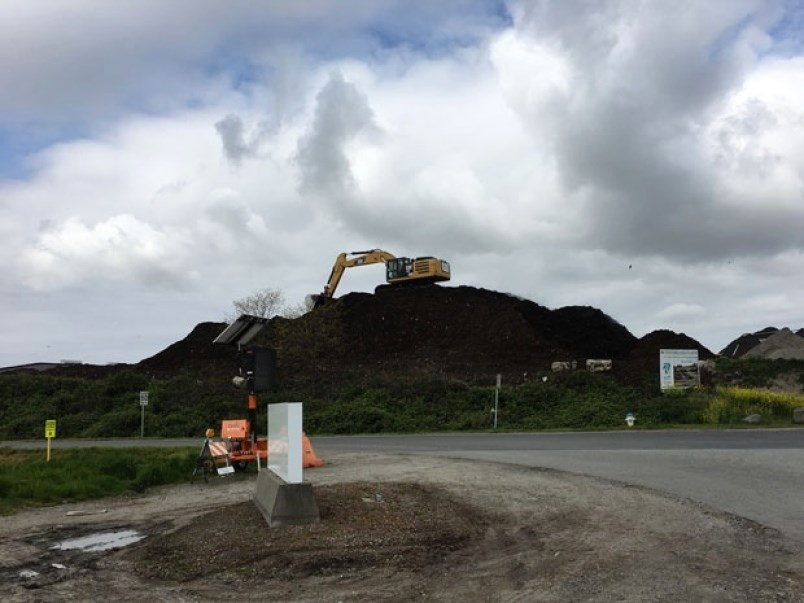Peter Edwards and his wife Linda say they’ve been victimized by a putrid odour that has negatively impacted their lives for more than a decade.
Edwards was the first to take the stand for the resident appellants at an Environmental Appeal Board hearing into an air quality permit for the GFL/Enviro-Smart composting facility in East Ladner.
His testimony began after 11 days of GFL witnesses and cross-examination.
Peter Edwards, a retired engineer, read a prepared statement to the three-member appeal board panel Tuesday afternoon at the Coast Tsawwassen Inn.
He said the couple has lived in its home on London Crescent for 18 years – a home which sits 890 metres from the 72nd Street composting operation.
“I have been at this hearing since the beginning and have heard many facts, figures and opinions from GFL witnesses,” he said. “My testimony reflects the impacts that West Coast Lawns and GFL have had on our lives. The stench at many times of the day is so obnoxious that enjoying our backyards, having a barbecue or spending time in the garden is impossible. We frequently have to go out for a meal or visit with friends just to get some relief from the stench. It’s embarrassing when friends and family refer to our home as the ‘stinky house.’”
Edwards said they have submitted many odour complaints to Metro Vancouver to no avail.
“Judging by the results, Metro and the City of Delta have taken no action. It really feels like a pointless exercise,” he said. “The stress from the lack of help and feeling of being constantly victimized in your own home is at times overwhelming.”
He also spoke of Linda’s additional health challenges – a neurological disorder – similar to Parkinson’s.
“With lower stress levels, her symptoms can be minimized, but high stress levels impact her well-being,” he said. “This odour must stop so residents like us do not have to continue to suffer.”
Following his statement, Wendy Betts, who along with Joss Rowlands is presenting the resident appellants’ case, asked Edwards if he feels confident in what he has heard from other witnesses that an enclosed facility would stop the odours?
“From what I heard, there are no guarantees GFL can resolve the problem,” he said. “I don’t have any confidence we will see an end to the odour with this new facility.”
During the first 11 days of the hearing, GFL lawyer Gary Letcher presented numerous witnesses trying to prove to the panel that the hundreds of complaints made by residents are not based on scientific evidence and that the residents are not experts in determining whether the foul odours were coming from GFL or other farming operations in South Delta.
Letcher argued the air quality permit is too restrictive, requires too many records and reports that are costly for GFL, and the company should be recognized for building a $37-million enclosed facility to address the odour issue.
Residents, on the other hand, want to see a stricter permit with better reporting and enforcement, no tonnage increases, better preservation of farmland, safer farm roads and tighter monitoring of leachate that could be escaping from the facility.
During his cross-examination, Letcher questioned whether Edwards could distinguish if the odours were coming from GFL or were just agriculture smells.
He also asked Edwards if there was something GFL could do to help him keep an “open mind” that the new facility would reduce the odours.
“If the building goes ahead and there are no guarantees there will be zero odours, then that is not acceptable, so no, I don’t think there is anything,” stated Edwards.
The hearing is now in recess until Wednesday, June 26 when cross-examination of Edwards will continue through Metro Vancouver lawyer Greg Nash.
Further resident witnesses will follow, including their own scientific expert, from Wednesday to Friday of next week.
The hearing is scheduled to end June 28, but it’s likely additional dates will be necessary as Metro Vancouver still has to put forward its case.
Sessions run from 8:30 a.m. to 4 p.m. daily and are open to the public.



